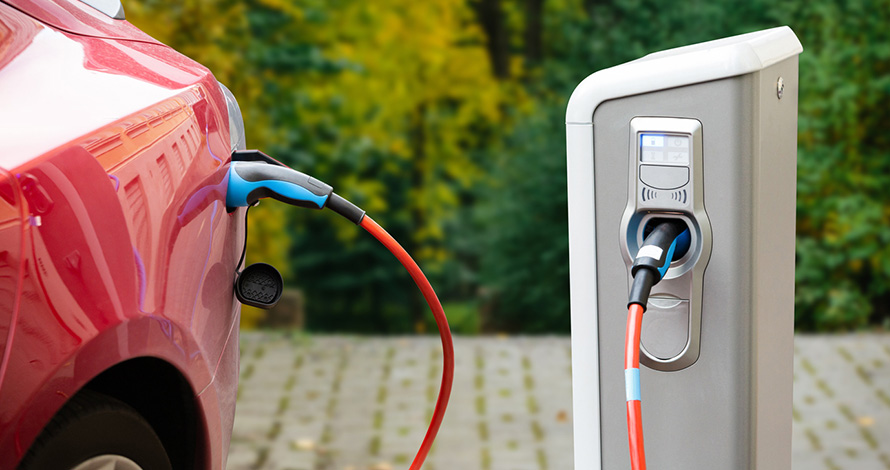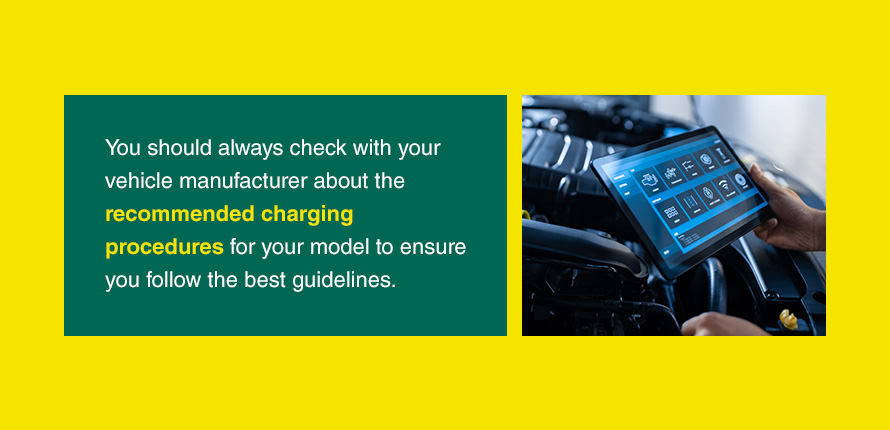
Electric vehicles (EVs) have many benefits, such as the fact that they can significantly reduce America’s fuel consumption. It’s no surprise that many people are switching from traditional gas vehicles to EVs — a quarter of new car sales in 2023 were for electric cars, so they’re certainly growing more popular.
However, you might have some questions about how these vehicles work, especially regarding their charging procedures. A common type of plug used in EV charging is the NEMA plug.
What Are NEMA Plugs and How Do They Differ From Other Options?
The National Electrical Manufacturer Association (NEMA) is largely responsible for promoting electrical safety, and plugs marked with “NEMA” comply with the organization’s various safety regulations.
By adhering to NEMA’s standards, NEMA plugs often offer better results than other options. They are generally more consistent than non-NEMA plugs, as they must comply with specific tests and ratings to ensure they meet the expected standard.
Some ways that NEMA plugs differ from other plugs are:
- Nonlocking connectors: NEMA plugs have nonlocking connectors, which make it easy for users to move cords in and out of the socket without damaging the outlet.
- Thicker stems: NEMA plugs have thicker grounding blades than non-NEMA plugs, which allows for a solid connection. Non-NEMA blades are thinner, making them more prone to bending.
- Solid blades: NEMA blades are solid, allowing increased conductivity and an additional layer of safety. Many non-NEMA plugs are thin, leading to unreliable connections.
Overall, many people and businesses select NEMA plugs as their preferred EV charging solution due to their high performance and reliability.
EV Chargers and NEMA Plugs
When you charge your vehicle at a charging station, you have peace of mind that your car receives the right — and safe — level of charge. But many people don’t live near charging stations or don’t want to watch their time waiting for their cars to charge, which is why at-home EV charging stations are rising in demand.
That’s where NEMA plugs come in. You can use a NEMA plug for Tesla EVs, the most well-known electric vehicle brand. The Tesla Y model alone sold over 770,000 units in 2022, and with their rising popularity, it’s more important than ever that owners are aware of the correct charging procedures to avoid harming the car or themselves.
NEMA plugs are also compatible with other types of electric vehicles, making them a versatile charging solution.

Which EV Charger NEMA Plug Is Right for You?
There are multiple types of NEMA plugs, and knowing the difference between them can help you determine which one to select. You should always check with your vehicle manufacturer about the recommended charging procedures for your model to ensure you follow the best guidelines.
1. NEMA 5-15
These plugs are commonly found in homes and consist of a grounding wire and two poles. It has a low amp and voltage rating of 15 and 120 respectively, making it ideal for smaller appliances. NEMA 5-15 plugs are also suited to Level 1 electric cars. However, their lower amp rating means they are one of the slower at-home charging methods.
2. NEMA 6-20
The NEMA 6-20 plug consists of two horizontal blades and a grounding pin. Its voltage is twice that of the NEMA 5-15, coming in at 240 volts. Combined with its powerful 20 amp rating, this is a very speedy car charger. It’s a suitable option for home charging, especially since it doesn’t require special wiring.
3. NEMA 6-50
The NEMA 6-50 is a suitable choice for those new to charging electric vehicles. It’s easy and affordable to install, with only four wires and no additional wiring. This plug uses 240 volts and can handle up to 50 amps, making it a versatile solution for household use. Its powerful charging capabilities offer a robust power supply that can quickly charge your EV.
4. NEMA 14-30
The NEMA 14-30 is one of the most common EV charging outlets in the U.S. because it’s the same as a standard dryer plug, which means many homes are already compatible with this type of outlet. Its constant, balanced and stable supply of electricity makes it a popular choice among electric vehicle owners.
Some other benefits include:
- Affordability: Since many garages already have this type of plug installed, it may be more cost-effective than upgrading your panels to work with another NEMA plug for your EV charger. If you already have this outlet, select an EV charging station with a NEMA 14-30 power cord to ensure compatibility.
- Adequate charging speed: While this plug might not be as fast as other options, like the NEMA 6-50, it’s still faster than a typical Level 1 charging station and will charge your EV in a few hours.
5. NEMA 14-50
Like the 14-30, this plug consists of four prongs with 240 volts. However, its amp handling capabilities are even higher, as it can handle up to 50 amps. It’s a reliable option for home charging. One of the most common EV chargers — Level 2 chargers — use this type of plug.
Factors to Consider
When you’re selecting which NEMA plug to use to charge your electric vehicle, there are a few key factors to consider:
- NEMA connectors: When it comes to charging solutions, the plug is only one part of the equation. You also need to use the right connector for your vehicle and plug to ensure smooth charging.
- Charging speeds: Consider your desired charging speed and which NEMA plug aligns with that. A NEMA 5-15 might offer adequate charging speeds for smaller vehicles, but they start to slow down with larger EVs. A NEMA 14-50 is one of the fastest options out there, but it might require additional wiring. NEMA 6-20s offer a happy medium with fast charging speeds and no special wiring requirements.
- Electrical requirements: Compare the voltage and amperage ratings of the plug you want to use with your circuit’s ratings to ensure it can handle the additional power demand. Assess your panel to see if there’s space for an extra circuit breaker or if installing one would exceed the load capacity. If your current electrical setup is incompatible with the plug you want to use, you may need to upgrade your system.

Contact Wiretech Company for Your EV Charger Installation
At Wiretech Company, we have decades of experience in the electrical business. We’re a Tesla-referred contractor, but we’re also equipped to install various other electric vehicle chargers. When you choose us to install your EV charger, you’ll benefit from qualified technicians, excellent customer service, a five-year full warranty, 24/7 support and financing options.
Whether you need repairs or a new charger for your electric vehicle, we’re here to help. Fill out our contact form to learn more.
